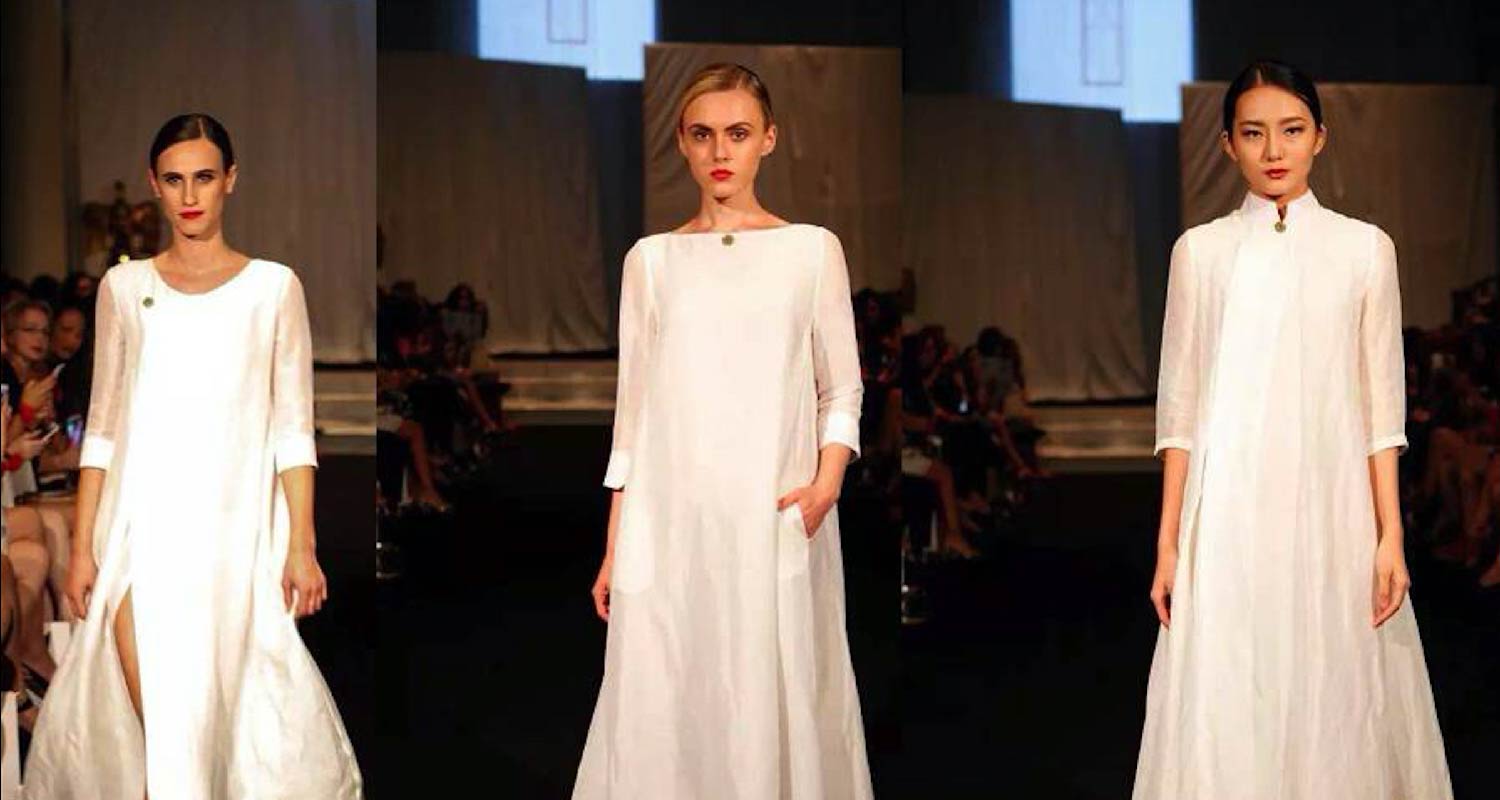
Behind the Scenes of Fashion Weeks
As we step into the glamorous world of fashion weeks, we are greeted by a whirlwind of creativity, passion, and meticulous planning. Behind the scenes of these iconic events, event organizers work tirelessly to curate an unforgettable experience for fashion enthusiasts and industry insiders alike. We had the opportunity to sit down with some of these masterminds to gain insight into their roles and responsibilities.
The Role of Event Organizers
One of the event organizers we spoke to was Sarah Thompson, the creative director of one of the most renowned fashion weeks in the world. With years of experience under her belt, Sarah shared with us the immense pressure she faces to deliver a flawless event. From scouting the perfect venue to coordinating with designers, models, and sponsors, Sarah’s attention to detail is unparalleled. She emphasized the importance of creating an atmosphere that not only showcases the designers’ collections but also captures the essence of their brand.
The Journey of a Designer
Another key player in the world of fashion weeks is the designer. These talented individuals pour their hearts and souls into creating collections that will captivate audiences and leave a lasting impression. We had the privilege of speaking with Amanda Roberts, a rising star in the fashion industry. Amanda shared with us the excitement and nerves she experiences leading up to her runway show. From sketching her initial designs to sourcing fabrics and overseeing the production process, Amanda’s journey is a labor of love.
During our conversation, Amanda spoke about the challenges she faces as a designer. The fashion industry is highly competitive, and standing out from the crowd can be a daunting task. However, Amanda emphasized the importance of staying true to her unique vision and not succumbing to trends. She believes that fashion should be a form of self-expression and encourages other designers to embrace their individuality.
The Celebration of Creativity and Diversity
As we delved deeper into our interviews, a common theme emerged – the dedication and passion that both event organizers and designers possess. Fashion weeks are not just about showcasing beautiful garments; they are a celebration of creativity, innovation, and the power of self-expression. These events provide a platform for designers to share their stories and connect with a global audience.
1.3 Sarah Williams: Inclusivity and Diversity in Fashion Week
In recent years, there has been a growing demand for inclusivity and diversity in the fashion industry, and event organizers are taking steps to address this issue. Sarah Williams, the founder of Diversity Fashion Week, shared her insights on the importance of representation in fashion week events.
Sarah believes that fashion week should be a platform that celebrates and embraces all body types, ethnicities, and identities. By featuring a diverse range of models and designers on the runway, Diversity Fashion Week aims to challenge traditional beauty standards and promote inclusivity.
One of the challenges Sarah faces is breaking down the barriers that have historically excluded certain groups from participating in fashion week. She believes that by providing opportunities for emerging designers from underrepresented communities, she can help create a more inclusive and equitable fashion industry.
Looking ahead, Sarah hopes to see a future where diversity is not just a trend but a fundamental aspect of fashion week. From showcasing collections that cater to a wide range of sizes to promoting gender-neutral fashion, she believes that the industry has the power to redefine beauty and inspire self-acceptance.
2.3 Isabella Martinez: Sustainable Fashion for a Better Future
Isabella Martinez, a passionate advocate for sustainable fashion, discussed her commitment to creating environmentally friendly designs. Isabella believes that the fashion industry has a responsibility to minimize its impact on the planet and promote ethical practices.
For Isabella, sustainability is not just a trend but a core value that guides her design process. She carefully selects materials that are eco-friendly and sources them from ethical suppliers. Isabella also focuses on creating timeless pieces that can be worn for years, reducing the need for constant consumption and waste.
One of the challenges Isabella faces is the misconception that sustainable fashion is boring or lacks style. She aims to debunk this myth by showcasing innovative and fashion-forward designs that prove sustainability and style can go hand in hand. Isabella believes that fashion weeks play a crucial role in promoting sustainable fashion and inspiring other designers to adopt more eco-conscious practices.
2.4 Michael Johnson: Celebrating Cultural Diversity Through Fashion
Michael Johnson, a designer with a deep appreciation for cultural diversity, shared his passion for incorporating different cultural elements into his designs. Michael believes that fashion has the power to bridge cultural divides and celebrate the richness of different traditions.
For Michael, the design process involves extensive research and immersion into various cultures. He draws inspiration from traditional textiles, patterns, and techniques, infusing them into his modern designs. By doing so, Michael aims to create garments that not only reflect his own heritage but also pay homage to the beauty of other cultures.
One of the challenges Michael faces is striking a balance between cultural appreciation and cultural appropriation. He believes it is essential to approach cultural elements with respect and understanding, ensuring that they are represented authentically and without perpetuating stereotypes. Michael sees fashion weeks as an opportunity to showcase the diversity of cultures and challenge the industry to embrace inclusivity on a global scale.
The Future of Fashion Weeks
Looking ahead, it is clear that fashion weeks will undergo significant transformations in the coming years. One of the key trends that will shape the future of fashion weeks is the integration of technology. As the digital landscape continues to evolve, fashion weeks are embracing digital experiences to reach a wider audience. Live-streaming runway shows has become a common practice, allowing fashion enthusiasts from around the world to tune in and witness the latest collections in real-time. Virtual reality experiences are also gaining traction, providing an immersive and interactive way for viewers to engage with the shows. Additionally, online platforms are becoming more sophisticated, offering features such as virtual showrooms and interactive presentations.
In terms of sustainability, the fashion industry has been under scrutiny for its environmental impact. As a result, there is a growing emphasis on incorporating sustainable and ethical practices into fashion weeks. Designers are exploring innovative ways to reduce waste, such as utilizing recycled materials and implementing circular fashion principles. Event organizers are also taking steps to minimize the carbon footprint of fashion weeks by adopting eco-friendly practices, such as using renewable energy sources and implementing waste management systems. Furthermore, there is a push for transparency and accountability in the supply chain, with an increasing number of designers showcasing their commitment to fair trade and ethical production.
Inclusivity and diversity are also at the forefront of the fashion week scene. The industry has been criticized for its lack of representation, but there is a noticeable shift towards inclusivity. Fashion weeks are now showcasing models of different body types, ethnicities, and ages on the runway, challenging the traditional beauty standards. In addition, designers from diverse cultural backgrounds are being celebrated, bringing a fresh perspective and celebrating the richness of global fashion. This move towards inclusivity not only reflects the changing demographics of society but also sends a powerful message of acceptance and empowerment.
As fashion weeks continue to evolve, one thing is certain: they will remain a celebration of creativity and a platform for innovation. The fusion of technology, sustainability, and inclusivity will shape the future of fashion weeks, creating a more accessible, responsible, and diverse industry. So, whether you’re attending a physical fashion week event or experiencing it through a digital platform, you can expect to be immersed in a world of artistry, craftsmanship, and boundary-pushing designs. Thank you for joining us on this fashion week insider journey, and we hope you continue to be inspired by the ever-evolving world of fashion.


